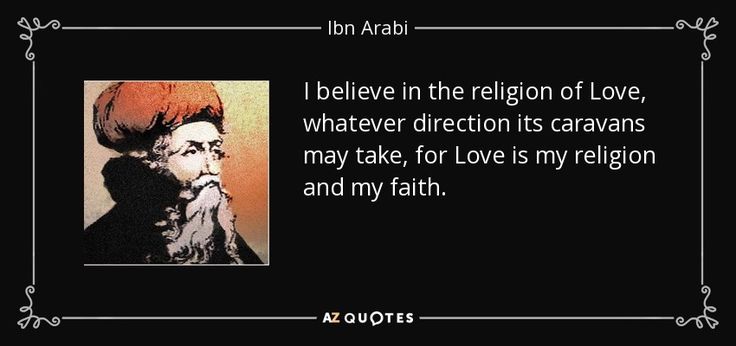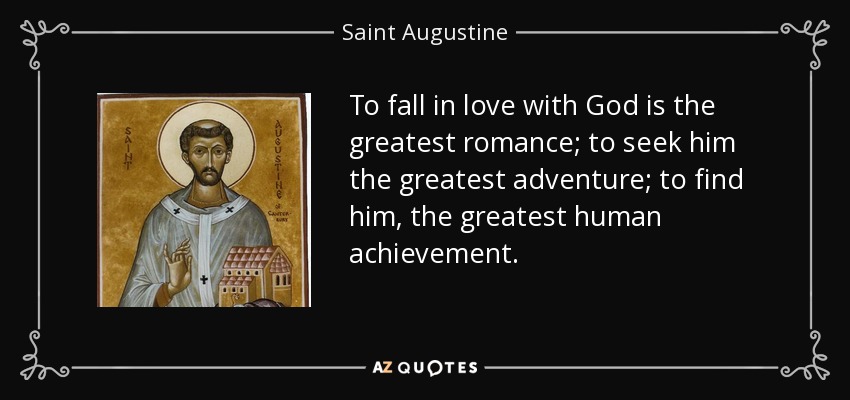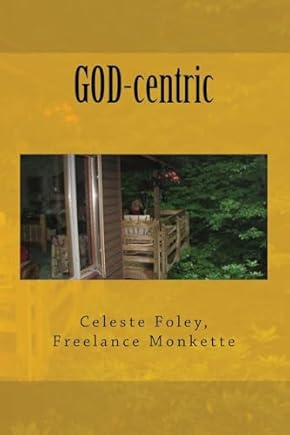A life centered on the pursuit of a good and fair God of love.
God comes first when religion conflicts with God’s love, goodness, or fairness. We are bound more tightly and meaningfully by the shared attributes that we recognize in God than by shared names for God or shared religious terminology or texts. Do you offer your allegiance to an always-good God or to the not-always-good God described in the Vedas, Upanishads, Bhagavad Gita, Sutras, Bible, or Quran? Place a good and fair God of love before religious dogma. Put God first when religion conflicts with God’s love, goodness, or fairness. Be GOD-centric.
Opening Epigraph
“I affirm, and would maintain, that true religion consists in proposing, as our great end, a growing likeness to the Supreme Being. Its noblest influence consists in making us more and more partakers of the Divinity. For this it is to be preached. Religious instruction should aim chiefly to turn men’s aspirations and efforts to that perfection of the soul, which constitutes it a bright image of God. Such is the topic now to be discussed; and I implore Him, whose glory I seek, to aid me in unfolding and enforcing it with simplicity and clearness, with a calm and pure zeal, and with unfeigned charity.”
William Ellery Channing, “Likeness to God,” 1828 sermon
Preface
“We must learn to live together as brothers or perish together as fools.”
Martin Luther King, Jr., Speech in St. Louis on March 22, 1964
Excerpt: Why did I write GOD-centric now? I felt like I had to. When I was growing up in the 1970s and heard someone say God or Jesus or Christianity, my body would immediately soften since I knew the person speaking was going to be loving and open and eager to help me or any other neighbor they encountered. Now, when I hear someone say God or Jesus or Christianity, my body immediately tenses as I brace myself for attack by someone angry and judgmental who wants to blame me rather than help me or any “other” neighbor they encounter. Sadly, I imagine people from other faith traditions have similar experiences to my own. Where did God’s love go? Religion deserves better. God deserves better. We should do better. My hope is that the GOD-centric orientation will help the majority of religious people who center themselves in God’s movement of love, goodness, and fairness reclaim the religious narrative. Let’s do better by God.
Ch. 1 The Invitation
“Wouldst thou learn to see clearly thy Lord’s meaning in this thing? Learn it well: Love was His meaning. Who shewed it thee? Love. What shewed He thee? Love. Wherefore shewed it He? For Love. Hold thee therein and thou shalt learn and know more in the same.”
St. Julian of Norwich, Revelations of Divine Love
Excerpt: I knew that God loved me. It is a short sentence, but it was a very powerful experience. I never again blamed myself, and I would not doubt God’s love for a single moment for the next fourteen years. I fell completely in love with God. Wouldn’t you?
Ch. 2 The Practice of the Presence of God
“I continued, for some years, applying my mind carefully the rest of the day, and even in the midst of my work, to the presence of God, whom I considered always as with me, often as in my heart… I make it my priority to persevere in His holy presence, wherein I maintain a simple attention and a fond regard for God, which I may call an actual presence of God. Or, to put it another way, it is an habitual, silent, and private conversation of the soul with God. This gives me much joy and contentment… There is not in the world a kind of life more sweet and delightful than that of a continual conversation with God. Only those can comprehend it who practice and experience it. Yet I do not advise you to do it from that motive. It is not pleasure which we ought to seek in this exercise. Let us do it from a principle of love, and because it is God’s will for us.”
Brother Lawrence, The Practice of the Presence of God
Excerpt: The practice of the presence of God was my life, and I could always count on it. Since it is unlikely that you want to spend the next fourteen years reading the same paragraph, I will supplement this chapter with God-related anecdotes that took place during the same time period, which I hope will give you a feel for whom I was in relationship to God.
Ch. 3 The Boot
“But what am I?
An infant crying in the night;
An infant crying for the light,
And with no language but a cry.”
Lord Tennyson, “In Memoriam AHH”
Excerpt: And then God went away.
Ch. 4 The Dark Night of the Soul
“This dark night is an inflow of God into the soul, which purges it of its habitual ignorances and imperfections, natural and spiritual, and which the contemplatives call infused contemplation or mystical theology. Through this contemplation, God teaches the soul secretly and instructs it in the perfection of love without its doing anything or understanding how this happens. Insofar as infused contemplation is loving wisdom of God, it produces two principal effects in the soul: by both purging and illumining, this contemplation prepares the soul for union with God through love. Hence the same loving wisdom that purges and illumines the blessed spirits purges and illumines the soul here on earth.”
St. John of the Cross, The Dark Night of the Soul
Excerpt: If your coming of age took place before internet connectivity, you may remember how it was to be young and somehow believe that you were thinking thoughts for the first time and feeling feelings that no one else had felt before you. God had abandoned me, and I had no idea that He had a track record of this sort of thing. Apparently, Mother Teresa suffered a 50-year-long dark night of the soul, so I feel like a crybaby.
Ch. 5 The Quest
“Freethinkers are those who are willing to use their minds without prejudice and without fearing to understand things that will clash with their own customs, privileges, or beliefs. This state of mind is not common, but it is essential for right thinking; where it is absent, discussion is apt to become less than useless.”
Leo Tolstoy, On Life and Essays on Religion
Excerpt: I plunged into truth-seeking, rapidly sniffing out what I could and could not believe and moving on. I tell you this because this type of search cannot do full justice to any religious tradition, philosophical thought, or other inquiry. I apologize to you at the onset that the following is merely a synopsis of that mad dash aimed at discovering the truth about God. I did not take the time to become intimate with any of these religious belief systems (or other ideas, though ideological concepts invite less intimacy), so I did not learn the back alleys and nooks and crannies where the greatest beauty is tenderly held.
Ch. 6 The God Statement
“We can believe what we choose. We are answerable for what we choose to believe.”
John Henry Cardinal Newman, “Letter to Mrs. Froude, June 27, 1848”
Ch. 7 The GOD-Centric Challenge
“They must first judge themselves that presume to censure others: And such will not be apt to overshoot the Mark. We are too ready to retaliate, rather than forgive or gain by Love and Information. And yet we could hurt no Man that we believe loves us. Let us then try what Love will do: For if Men did once see we Love them, we should soon find they would not harm us. Force may subdue, but Love gains.”
William Penn, Fruits of Solitude
Excerpt: How could we be expected to supersede the qualities we ascribe to God? If you believe that God is good to you and yours but not good to everyone, how can you hold yourself to a higher standard?
Ch. 8 The GOD-Centric Response
“We cannot know whether we love God, although there may be strong reason for thinking so; but there can be no doubt about whether we love our neighbor or not. Be sure that, in proportion as you advance in fraternal charity, you are increasing your love of God.”
St. Teresa of Avila, The Interior Castle
Excerpt: Living out God’s love is the central spiritual practice of the GOD-centric person. We continually return to our Godly source of love to strengthen the quality of being we bring to the world so we can better interact lovingly with other people as we look forward to being transformed by them and to better realizing God.
Ch. 9 The GOD-Centric Conversation
“This is the word of the Lord God to you all, a charge to you all in the presence of the living God; be patterns, be examples, in all countries, places, islands, nations, wherever you come; that your carriage and life may preach among all sorts of people, and to them; then you will come to walk cheerfully over the world, answering that of God in every one; whereby in them ye may be a blessing, and make the witness of God in them to bless you: then to the Lord God you will be a sweet savor, and a blessing.”
George Fox, Journals
Excerpt: GOD-centric is an orientation to religion that embraces diversity as the foundation of our harmony. GOD-centric is not about the blending away of religious differences into a mushy and boring elevator music sameness. I’d like to teach the world to sing in a perfect harmony that involves different voices and instruments coming together to create exciting, vital, evolving music… GOD-centric’s “one love” springs from many sources that move toward our one good and fair God of love. Our expressions of love will be varied, but the aim of our love will be One.
Ch. 10 The Eternal
“Highly ought we to rejoice that God dwelleth in our soul, and much more highly ought we to rejoice that our soul dwelleth in God. Our soul is made to be God’s dwelling-place; and the dwelling-place of the soul is God, Which is unmade. And high understanding it is, inwardly to see and know that God, which is our Maker, dwelleth in our soul; and an higher understanding it is, inwardly to see and to know that our soul, that is made, dwelleth in God’s Substance: of which Substance, God, we are that we are. And I saw no difference between God and our Substance: but as it were all God; and yet mine understanding took that our Substance is in God: that is to say, that God is God, and our Substance is a creature in God.”
St. Julian of Norwich, Revelations of Divine Love
Excerpt: Convergence: at our deepest being and highest mystical reach and most loving agency, we all touch God, and we all touch that which touches God in each other in eternity. Our eternal existence is contingent on our living in and out of God’s love during our time of temporal historicity. We become real within our space-time; we become eternal in God’s space-time. We determine how much of our life will be lived in convergence with God. We choose whether or not or to what extent we will live in and live out God’s love in our unique and specific way in our unique and specific time.
Bonus excerpt: So, God remains a mystery to me, which is as it should be, but it leaves open some hard questions. What if there were a God, but that God was not always loving, good, and fair? My answer is that I would remain committed to love, goodness, and fairness and, therefore, would not commit myself to an unloving, immoral, or unfair God. What if there were no God? I would throw in an extra “o” and love Good in the same way that I now love God.
Epilogue: The GOD-Centric Process
“But the divine nature is simple, pure, unique, immutable, unalterable, ever abiding in the same way, and never goes outside itself. It is utterly immune to any participation in evil and thus possesses the good without limit, because it can see no boundary to its own perfection, nor see anything that is contrary to itself. When therefore it draws human nature to participate in its perfection, because of the divine transcendence, it must always be superior to our nature in the same degree. The soul grows by its constant participation in that which transcends it; and yet the perfection in which the soul shares remains ever the same, and is always discovered by the soul to be transcendent to the same degree.”
St. Gregory of Nyssa, Commentary on the Song of Songs
Excerpt: The GOD-centric process is to continually expand and deepen our capacities to know God in our hearts, souls, and minds. The more we increase our capacities to understand, the more we can understand. The more we can understand, the greater our capacity to understand. So, our process of continual transformation leads to ever-increasing capacities and abilities to grow closer to our good and fair God of love.
Closing Epigraph
“The life of faith is nothing but the continual pursuit of God through everything that disguises, disfigures, destroys, and, so to say, annihilates him.”
Fr. Jean-Pierre de Caussade, Abandonment to Divine Providence
Closing Prayer
“Friend, hope for the Guest while you are alive.
Jump into experience while you are alive!
Think…and think… while you are alive.
If you don’t break your ropes while you’re alive,
do you think ghosts will do it after?
The idea that the soul will join with the ecstatic
just because the body is rotten —
that is all fantasy.
What is found now is found then.
If you find nothing now,
you will simply end up with an apartment in the
City of Death.
If you make love with the divine now, in the next life
you will have the face of satisfied desire.
So plunge into the truth, find out who the Teacher is,
Believe in the Great Sound!
Kabir says this: When the Guest is being searched for,
it is the intensity of the longing for the Guest that
does all the work.
Look at me, and you will see a slave of that intensity.”
Kabir, “Friend, hope for the Guest”



